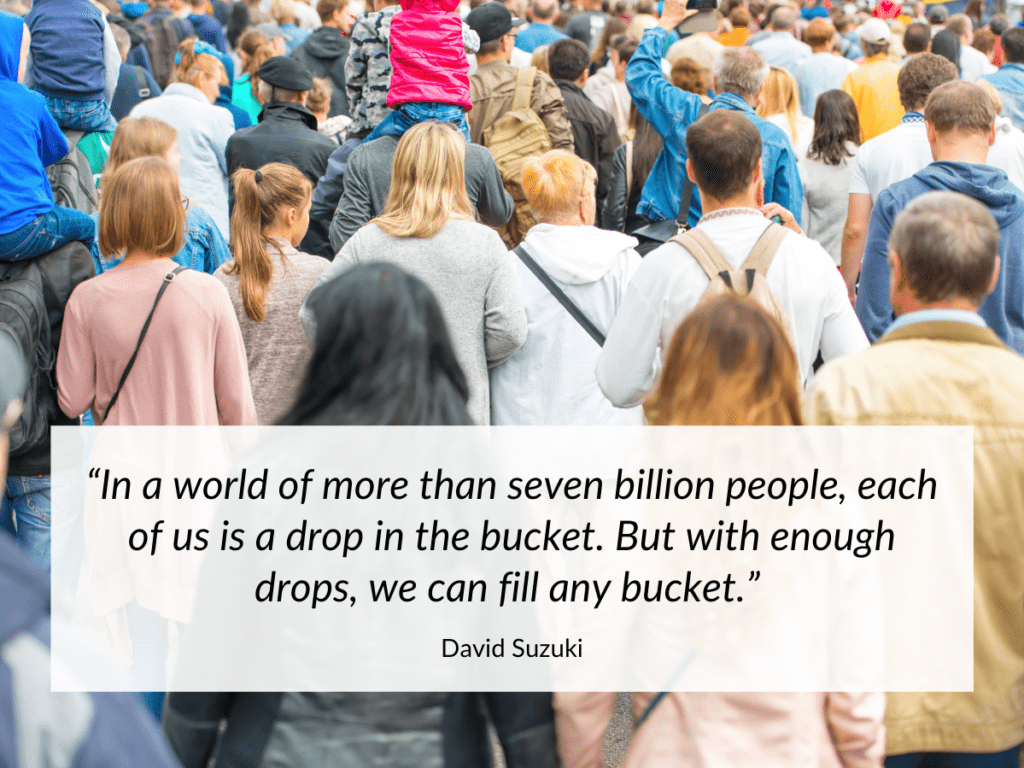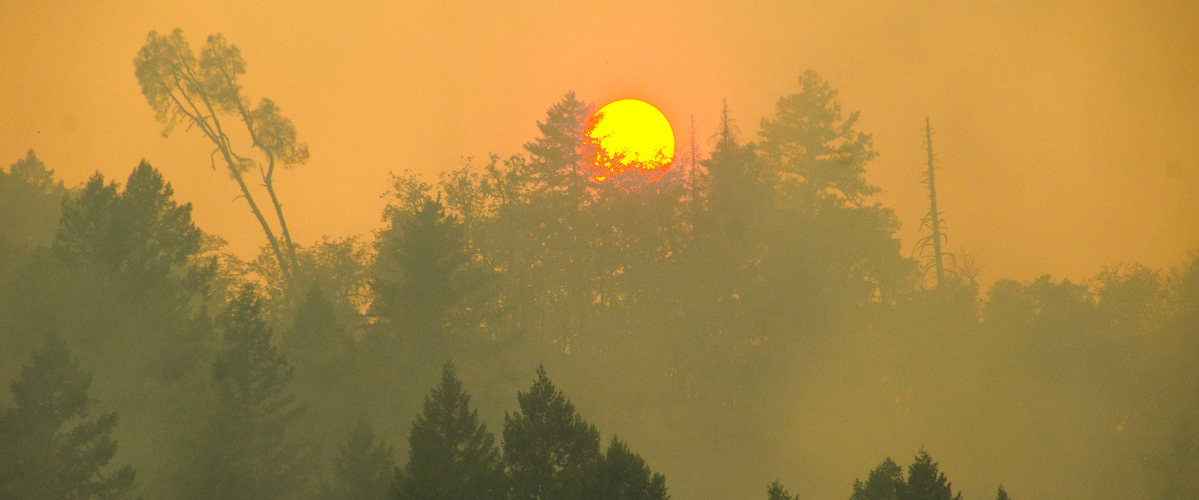Whether it’s hot or cold, wet or dry, or windy or calm, discussing the weather is a popular topic of conversation for Canadians.
It’s important, however, that we don’t mistake “weather change” with “climate change”—weather refers to fluctuations in our environment from day-to-day or hour-to-hour, whereas the climate of a region determines what kind of weather is expected there.
Over the last two decades, Canada has seen a dramatic increase in the costs of extreme events in flooding, wildfires, and temperature (like the “heat dome” we recently experienced shattering temperature records in BC). Because these extreme changes threaten our basic needs, like air to breathe, food to eat, and shelter to keep us safe, and because these changes impact all of us, climate change is a public health issue.
At the same time, not all Canadians are experiencing the health effects of climate change the same way.

About 75% of our overall health is determined by a group of social, economic, and environmental factors that impact one’s place in the world and health status, known as the social determinants of health. When people are disadvantaged from achieving health due to social determinants, inequitable situations are created.
Then there is the concept of intersectionality which recognizes that individuals are complex and may come from different backgrounds and experiences. In other words, one person may have a combination of a few or many determinants of health, and the more one has, the more susceptible they are to experiencing health inequities.
And those who already experience structural inequities such as colonization, racism, and low income are most vulnerable to climate change risks and impacts.
For example, Northern Canada is warming three times faster than the rest of the world, compounding the climate change impacts on northern Indigenous communities.
People living in Northern communities can expect: damage to buildings, roads, pipelines, power lines, and airstrips due to thawing permafrost; reduced and disrupted access to communities and facilities due to warmer summer temperatures; and increased risks from marine accidents due to increased marine traffic and reduced summer sea-ice extent.
These events experienced by those living in Northern communities increase food insecurity for people in that region. For instance, sea animals that make up the base of an Inuit diet are vulnerable to changes in snow or ice, and a precipitation regime that determines migration timing, abundance, and health.
In British Columbia, we have seen all seasons getting warmer, especially the winter, and warming will only get more extreme, leading to glaciers melting faster, sea level rise causing human displacement, flooding, wildfires, air pollution, food insecurity, and other disastrous events that will negatively impact the health of our population, especially for those who already experience health inequities.
Climate change is a public health emergency.
The hopeful news is that since human activity is the main cause of climate change, through a committed effort to Activate Health, our individual actions can help create a safer, healthier, and more equitable world for all who live in it.

While this is hardly an exhaustive list of actions, here are three ways you can Activate Health and help create a positive impact for the population based on your individual actions:
Make your voice heard
There are countless people in British Columbia experiencing health inequities that are compounded by climate change. Social and structural systems need to be changed and you can use your voice, and help speak for those who can’t, by voting, attending a climate march or rally (when it’s safe to do so), talking to your MPs, and signing a petition like this one.
Have climate change conversations
Sweeping climate change under a rug and ignoring isn’t going to make it go away; in fact, the less we talk about it, the less likely we will heal our planet, which means that talking about climate change with those you know and bringing it to light is one of the most important things you can do. Go here for some great resources and tips on how to have effective climate change conversations.
Find ways to cut back
Creating a positive impact doesn’t mean you have to completely change your life or remove all luxuries or conveniences, rather, it requires a conscious effort to assess your life and consider where you and your household are willing to cut back. Whether it’s riding your bike or taking transit once a week to work or school instead of driving, installing solar panels in your home, eating less meat, buying fewer items—there are many ways small changes can add up to make a big difference.
We realize that climate change is an enormous and complex issue, and that through this blog post we have merely begun to scratch the surface from a public health perspective and a health equity lens. With this said, we encourage you to continue to educate yourself on climate change and the communities that are most affected by it now and will be in the future, and commit to taking positive action that will make a difference.
This is how we Activate Health.
This is how we promote health equity.
And this is how we protect and prolong the life of those living in our communities, province, country, and world.
For more ideas on how you can help fight climate change, go here.
